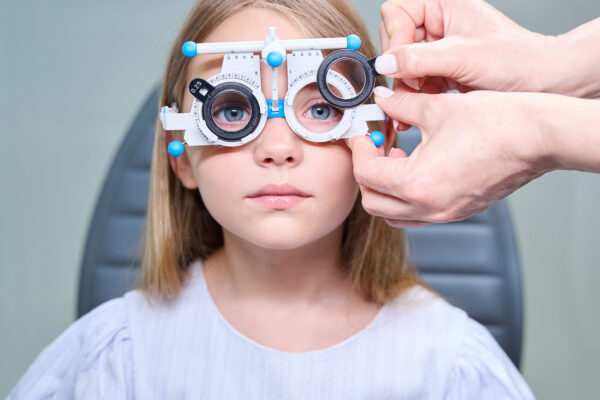What Every Adult Over 40 Needs to Know
By Jamie Bussin, Featuring Dr. Raj Rathee
Vision is something many of us take for granted—until it starts to fade. On Episode #101 of The Tonic Talk Show/Podcast I spoke with Dr. Raj Rathee, Chief of Ophthalmology at North York General Hospital in Toronto and Chair of the Eye Physicians and Surgeons of Ontario (EPSO), to discuss the importance of eye health and the various ways to protect, treat, and enhance your vision as you age. This is a digest of that conversation.
The Basics of Eye Care
According to Dr. Rathee, maintaining good eye health starts with regular eye exams. These check-ups are essential, even if you’re not noticing any issues.
“People often feel fine and think they see well,” Dr. Rathee explains. “But conditions like glaucoma can develop without symptoms and cause irreversible damage over time.”
Regular eye exams help detect not only vision problems, like the need for updated prescriptions, but also deeper health issues that may first show signs in the eyes. These include diabetes, high blood pressure, and even brain tumors in rare cases. Dr. Rathee also emphasizes the importance of general wellness habits such as eating healthy, sleeping well, getting exercise, and taking breaks from screens. He notes that most of us spend extended hours in front of computers and mobile devices, which can strain the eyes and lead to fatigue or discomfort.
Warning Signs Not to Ignore
So, what kinds of symptoms should prompt a visit to an eye care professional?
Dr. Rathee suggests watching for:
- Sudden or gradual loss of vision
- Redness, pain, or discomfort in the eye
- Changes that don’t improve with new glasses
These could be signs of something more serious and shouldn’t be ignored.
Conditions That Commonly Affect Adults Over 50
As we age, several eye conditions become more common. One of the earliest and most common changes is presbyopia—the loss of ability to focus up close, usually noticeable in your 40s or 50s. Reading glasses are a simple solution, but other treatments are also available.
Another common issue is cataracts, where the lens of the eye becomes cloudy. Dr. Rathee explains that people may first notice cataracts when their vision no longer improves with glasses. “The key symptom is when vision just doesn’t seem clear anymore—especially in low light or at night,” he says. “That’s when it’s time for a proper eye exam to determine whether surgery might be needed.”
Eye Surgery: What to Expect
Understandably, the idea of eye surgery can make people nervous. “Loss of eyesight is the second most feared health condition after cancer,” Dr. Rathee notes.
However, he reassures listeners that modern eye surgery is safe, quick, and highly effective. For example, cataract surgery is one of the most common and successful procedures performed worldwide. During cataract surgery, the eye’s natural cloudy lens is removed and replaced with an artificial acrylic lens. This replacement is permanent and typically restores vision to levels patients haven’t experienced in years.
Choosing the Right Lens
Dr. Rathee explains that patients now have more options than ever when it comes to intraocular lenses (IOLs). While a standard lens will restore good basic vision, premium options can do much more.
Some advanced lenses provide:
- Clear distance vision
- Intermediate and near vision
- Reduced or even eliminated need for glasses
“Some patients may need glasses much less—or not at all—after cataract surgery, depending on the lens they choose,” he explains. While the term “bionic” might be a stretch, these high-tech lenses do significantly enhance lifestyle and independence.
The Real-Life Benefits of Cataract Surgery
Beyond medical results, cataract surgery has meaningful lifestyle benefits. Improved vision leads to better mobility, confidence, and quality of life. For many, it means they can drive safely, read comfortably, and enjoy hobbies they may have given up. Dr. Rathee points out that while people often share horror stories about surgery, those are rare and often exaggerated. “It’s like the game of broken telephone. Someone says something, and by the time the story gets to you, the facts are all twisted.”
In reality, complications are rare, and the vast majority of patients do extremely well.
Final Thoughts
Whether it’s upgrading your glasses, managing dry eye, or planning for cataract surgery, regular visits to your eye care professional are essential. Many eye conditions are treatable—and even preventable—when caught early. As Dr. Rathee wisely summarizes, “The key in cataract surgery is that patients do better, and the side effect—which is quite lovely—is that many need glasses far less than they did before.”
So don’t wait for symptoms to become severe. Your eyesight is too valuable to neglect. Book that eye exam, take screen breaks, and give your eyes the care they deserve.




